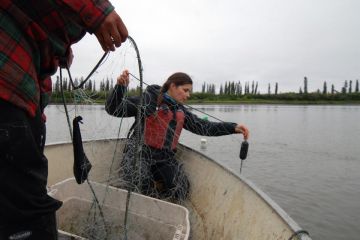
Food, land and culture define Gwich'in partnership
Environmental studies master’s graduate, Tracey Proverbs, credits her supervisor Trevor Lantz and the environmental studies program for the opportunities she experienced during her graduate degree.

Environmental studies master’s graduate, Tracey Proverbs, credits her supervisor Trevor Lantz and the environmental studies program for the opportunities she experienced during her graduate degree.
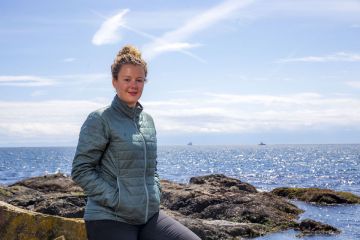
Vic marine biologist and coastal geographer Lauren McWhinnie is now looking at how we can also reduce noise pollution from small vessel traffic on this population of whales.
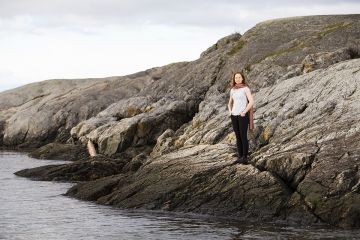
Marine protected areas are well known for protecting biodiversity, but their effects on people who use the oceans are debated. Now a new review—led by University of Victoria marine conservation scientist Natalie Ban and 12 co-authors—illustrates that these protected areas can also support human well-being.
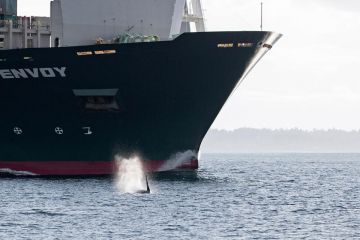
On World Ocean’s Day, marine biologist and coastal geographer Lauren McWhinnie is excited to be part of the festivities at Fisherman’s Wharf and supporting local organization SIMRES (Saturna Island Marine Research and Education Society); however, her purpose will be to raise awareness about small boat noise in the Salish Sea and its impact on the health of whales and in particular the endangered Southern Resident Killer Whales (SRKW).
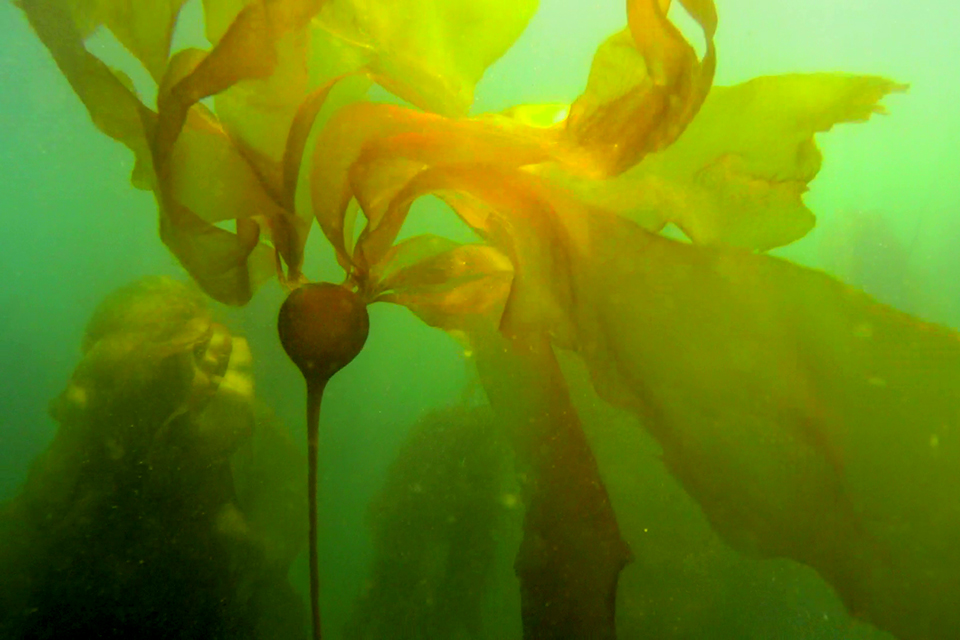
Kelp forests are a rich ecosystem critical to many species such as herring and salmon, but researchers know that kelp is decreasing in some areas of the Pacific Northwest. Detailed maps of kelp beds developed by the British Navy in the 19th century are helping modern scientists chart habitat change in coastal BC.
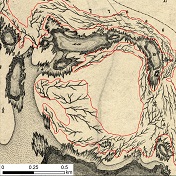
Nautical maps from century ago help BC researchers chart kelp
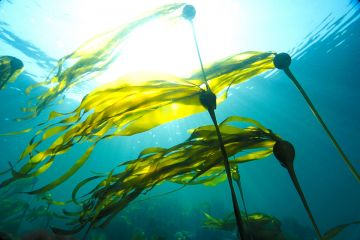
A new tool for understanding kelp decline and its impact on BC coastal habitats drew upon British admiralty charts from 1858 to 1956. UVic geographer Maycira Costa and research colleagues have created the first historical digital map of BC’s coastal kelp forests to further investigate this loss of kelp.
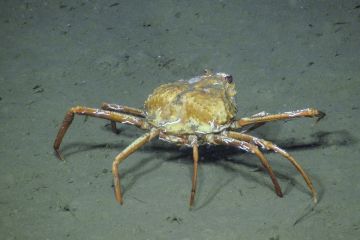
Tanner crabs observed feasting at a bubbling methane seep on the deep seafloor in the northeast Pacific Ocean may be developing a way to adapt to climate change, says a marine ecologist from the University of Victoria whose work with Oregon-based researchers establishes for the first time that a commercially-harvested species is feeding on the energy source.
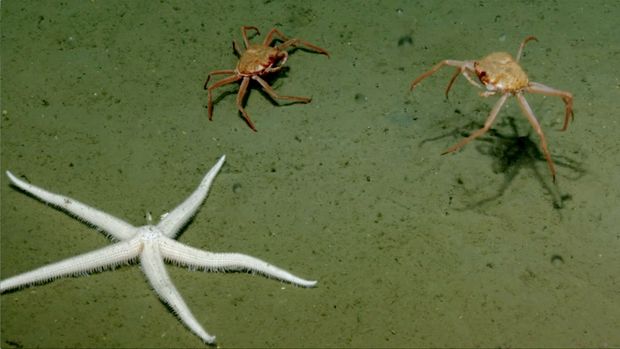
How flipping crabs revealed a hidden food supply
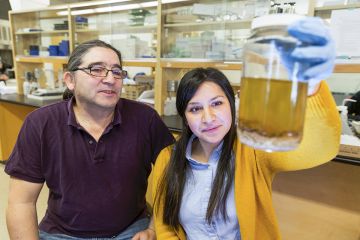
While many factors have contributed to the dwindling numbers of salmon—historic overfishing, warming ocean temperatures, reduced river levels, hatchery competition, freshwater habitat destruction, and disease—it's difficult to pin down the most significant causes. UVic research Francis Juanes believes that many causes of salmon mortality occur early in life.
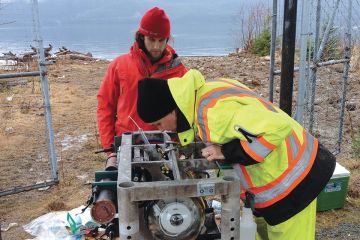
Since 2014, UVic's Ocean Networks Canada has been installing smaller community observatories on Vancouver Island, along the BC coast and in the Arctic, partnering with First Nations and coastal communities to measure ship traffic, weather, underwater acoustics and more.
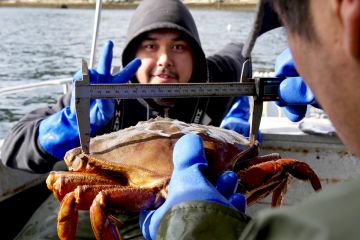
The Central Coast Indigenous Resource Alliance partnered with UVic conservation scientist Natalie Ban and colleagues on two recent publications on the status of two marine species. By interviewing Indigenous fishers, Ban and collaborators were able to fill in data gaps, with implications for research applicable to BC and elsewhere in the world.
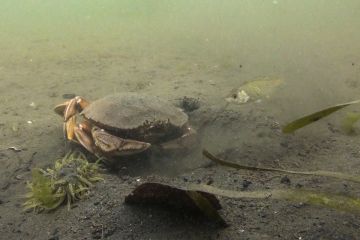
Without Indigenous knowledge, the recent findings by conservation scientist Natalie Ban and her collaborators would not carry so stark a message about two culturally and ecologically important marine species—the Dungeness crab and yelloweye rockfish of BC’s central coast.
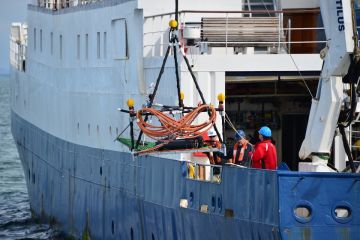
The world-leading University of Victoria initiative Ocean Networks Canada (ONC) received $7.2 million in new funding today from the Canadian government to continue its vital work monitoring Canada's ocean and coasts, including endangered southern resident killer whale habitat.
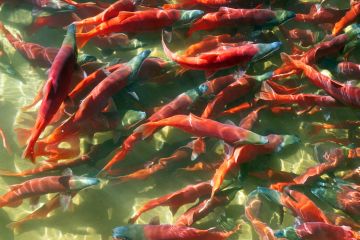
Five UVic projects, with $823,000 in new funding from a leadership fund from the Canada Foundation for Innovation as part of a $52-million federal investment announced Aug. 15, will carry out ground-breaking research including in an aquatic disease research facility at UVic.
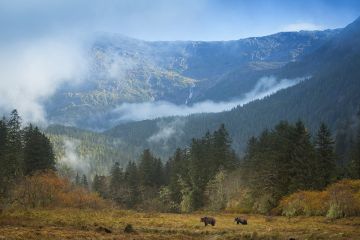
Tracking the salmon-eating habits of grizzly and black bears for nearly two decades has revealed some surprising results for UVic geography PhD candidate and Raincoast scientist Megan Adams. She hopes the study will inform land-use managers on how the bear-salmon system goes well beyond the coastal areas into interior habitats of BC.